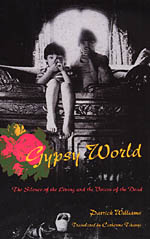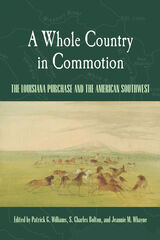3 books by Williams, Patrick

Gypsy World
The Silence of the Living and the Voices of the Dead
Patrick Williams
University of Chicago Press, 2003
For many of us, one of the most important ways of coping with the death of a close relative is talking about them, telling all who will listen what they meant to us. Yet the Gypsies of central France, the Manuš, not only do not speak of their dead, they burn or discard the deceased's belongings, refrain from eating the dead person's favorite foods, and avoid camping in the place where they died.
In Gypsy World, Patrick Williams argues that these customs are at the center of how Manuš see the world and their place in it. The Manuš inhabit a world created by the "Gadzos" (non-Gypsies), who frequently limit or even prohibit Manuš movements within it. To claim this world for themselves, the Manuš employ a principle of cosmological subtraction: just as the dead seem to be absent from Manuš society, argues Williams, so too do the Manuš absent themselves from Gadzo society—and in so doing they assert and preserve their own separate culture and identity.
Anyone interested in Gypsies, death rituals, or the formation of culture will enjoy this fascinating and sensitive ethnography.
In Gypsy World, Patrick Williams argues that these customs are at the center of how Manuš see the world and their place in it. The Manuš inhabit a world created by the "Gadzos" (non-Gypsies), who frequently limit or even prohibit Manuš movements within it. To claim this world for themselves, the Manuš employ a principle of cosmological subtraction: just as the dead seem to be absent from Manuš society, argues Williams, so too do the Manuš absent themselves from Gadzo society—and in so doing they assert and preserve their own separate culture and identity.
Anyone interested in Gypsies, death rituals, or the formation of culture will enjoy this fascinating and sensitive ethnography.
[more]

I Do Wish This Cruel War Was Over
First-Person Accounts of Civil War Arkansas from the Arkansas Historical Quarterly
Mark K. Christ
University of Arkansas Press, 2014
I Do Wish this Cruel War Was Over collects diaries, letters, and memoirs excerpted from their original publication in the Arkansas Historical Quarterly to offer a first-hand, ground-level view of the war's horrors, its mundane hardships, its pitched battles and languid stretches, even its moments of frivolity. Readers will find varying degrees of commitment and different motivations among soldiers on both sides, along with the perspective of civilians. In many cases, these documents address aspects of the war that would become objects of scholarly and popular fascination only years after their initial appearance: the guerrilla conflict that became the "real war" west of the Mississippi; the "hard war" waged against civilians long before William Tecumseh Sherman set foot in Georgia; the work of women in maintaining households in the absence of men; and the complexities of emancipation, which saw African Americans winning freedom and sometimes losing it all over again. Altogether, these first-person accounts provide an immediacy and a visceral understanding of what it meant to survive the Civil War in Arkansas.
[more]

A Whole Country in Commotion
The Louisiana Purchase and the American Southwest
Patrick G. Williams
University of Arkansas Press, 2005
Bringing together the work of prominent scholars and rising stars in southern, western, and Indian history, A Whole Country in Commotion explores lesser-known aspects of one of the better-known episodes in U.S. history. While the purchase has been seen as a great boon for the United States, doubling the size of the new nation and securing American navigation on the Mississippi River, it also brought turmoil to many. Looking past the triumphal aspects of the purchase, this book examines the “negotiations among peoples, nations and empires that preceded and followed the actual transfer of territory.” Its nine essays highlight the “commotion” the purchase stirred up—among nations, among Louisiana residents and newcomers, even among those who remained east of the Mississippi. Many of these essays look at the portion of the Louisiana territory that would become Arkansas to illustrate the profound impact of the purchase on the diverse populations of the American Southwest. Others explore the woeful commotion brought to many thousands of lives as Jefferson’s “noble bargain” set the stage for the forced migration of native and African Americans from the east to the west of the Mississippi.
[more]
READERS
Browse our collection.
PUBLISHERS
See BiblioVault's publisher services.
STUDENT SERVICES
Files for college accessibility offices.
UChicago Accessibility Resources
home | accessibility | search | about | contact us
BiblioVault ® 2001 - 2024
The University of Chicago Press









